The discovery of a hidden relationship raises concerns
Arranged marriage has long been a significant aspect of South Asian culture, where families play a central role in selecting life partners for their children.
While arranged marriages can foster strong familial and community ties, they are not always successful.
For a variety of reasons, individuals may reject each other – a choice that is still forbidden in certain areas of South Asia.
But, especially in more Western South Asian communities, like the USA and UK, South Asians are rejecting arranged marriage suitors.
While arranged marriages remain prevalent, there are indications of shifting attitudes.
Younger generations are increasingly seeking a balance between tradition and personal choice.
According to the Indian youth media platform, Youth Ki Awaaz, about 74% of Indian youth surveyed in 2019 preferred a partner chosen by themselves.
However, their findings can be transferred to other communities where the desire for more autonomy in the selection process is increasing.
But, what are some of the other elements that can lead to arranged marriage rejection?
Trust & Dishonesty

Trust is considered a fundamental pillar of a successful marriage in South Asian culture.
Honesty forms the basis of emotional intimacy, mutual respect, and reliability within a relationship.
Individuals or even families may reject an arranged marriage proposal if they perceive a lack of trust between the potential partners, as it raises concerns about the stability and longevity of the marriage.
South Asian societies place a high value on maintaining family honour and reputation. A lack of trust can lead to doubts about the individual’s character and integrity.
Families may fear that entering into a marriage where trust is compromised could result in negative consequences for their family’s reputation within the community.
Consequently, they may reject the proposal to protect their social standing.
Although, whilst trust relates to other aspects like emotional security, communication and transparency, not all matchmakers are truthful during this process too.
Some may leave out certain traits or physical features of a person in order for their potential partner to be more impressed.
Then, when it comes to formal functions, their lying will be revealed which will lead to rejection.
This happens frequently in South Asian communities as some matchmakers want a wedding to happen quickly so will try and “cheat” the process.
No Attraction

Physical appearance is often given substantial consideration in South Asian societies when it comes to assessing compatibility in arranged marriages.
The emphasis on attractiveness stems from the belief that physical compatibility contributes to a harmonious and fulfilling relationship.
Without a perceived attraction, individuals may fear a lack of intimacy, leading to potential rejection.
Likewise, South Asian cultures often place a great deal of importance on societal opinions and external perceptions.
When individuals are considering an arranged marriage, they may feel pressured to conform to societal expectations, including marrying someone who is considered physically attractive by others.
The fear of judgment and social acceptance can influence their decision to reject a proposal if there is a perceived lack of attraction.
In traditional South Asian societies, gender roles often come with predefined expectations.
Men are expected to provide and protect, while women are expected to nurture and support.
Lack of attraction can be perceived as a hindrance to fulfilling these roles and the traditional expectations associated with them.
But, a lack of attraction can stem from these gender roles not appearing the other way around.
In modern communities, South Asian women may want a man who is emotionally supportive and men may want a woman who works and provides too.
Lack of Financial Status

Individuals may seek a partner who can provide a certain level of economic stability and support the family’s well-being.
A lack of financial status may raise concerns about the future, including the ability to meet basic needs, fulfill responsibilities, and provide for the family.
South Asian societies tend to view financial success as an indicator of personal worth and social standing.
There is a general expectation that individuals should marry someone of similar or higher financial status to maintain or enhance their social position.
Consequently, a significant disparity in financial status can lead to rejection due to concerns about social acceptance and perceived imbalances in the relationship.
For instance, the expectation is often that the husband primarily takes on the role of the provider.
A lack of financial status in a potential groom may lead to concerns about his ability to fulfill this role effectively.
This is because in many South Asian cultures, people/families are often judged based on their financial status and reputation.
Marrying into a family with a lower financial standing can be perceived as a risk to the family’s reputation and social standing.
As a result, families may reject a proposal if they believe it could negatively impact their image in the community.
Fear of In-Laws
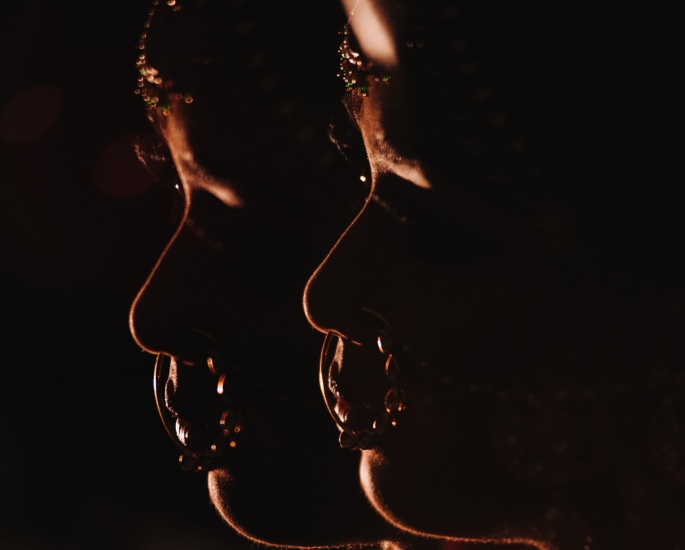
The institution of the family extends beyond the immediate couple.
The influence and involvement of extended family members, particularly the in-laws, are highly significant.
The fear of in-laws arises from the potential conflicts, power dynamics, and pressures associated with integrating into a new family and navigating complex relationships.
Many South Asians often have patriarchal family structures, where the authority and decision-making power lie with the elders, particularly the male heads of the household.
This power dynamic can create a fear of in-laws, especially for women, who may anticipate difficulties in facing oppressive attitudes from their potential in-laws.
Outdated gender roles in South Asian cultures often place women in submissive and obedient positions within the family structure.
So, women may reject a marriage if they fear oppressive treatment from their potential in-laws.
Although, in some cases, the potential in-laws can punish the bride even before marriage has taken place.
No Dating Experience
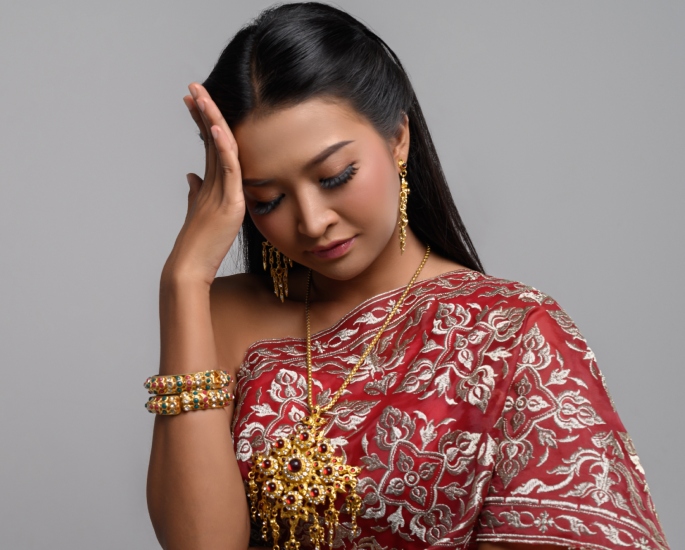
In South Asian cultures, dating before marriage is often discouraged or not widely practiced.
Individuals may have limited exposure to romantic relationships, making it challenging for them to assess their preferences, compatibility, and expectations of a partner.
Without prior dating experience, they may hesitate to commit to a lifelong partnership through an arranged marriage, fearing uncertainty and potential dissatisfaction.
Dating provides opportunities for individuals to develop emotional intimacy and connection with a potential partner.
The absence of dating experience can raise concerns about the ability to establish a deep emotional bond and genuine connection within an arranged marriage.
This is especially evident in British Asians who find it more appealing if their potential partner is aware of their emotional needs.
For some, a lack of dating experience may also relate to the individual themselves.
Questions could arise of whether there is something wrong with them, or that they simply haven’t had the opportunity to date.
Age Difference

South Asian families may reject an arranged marriage proposal if they believe that the couple’s generational gap will result in challenges in communication, understanding, and compatibility.
A significant age difference may raise eyebrows in the community, leading to potential judgment, gossip, or social stigma.
Families may fear the negative impact on their reputation and the couple’s ability to navigate societal norms and expectations.
Whilst a lot of marriages happen across South Asia, particularly between older men and younger women, age differences are a big reason for arranged marriage rejection in western societies.
This is because individuals at different life stages may have different priorities and expectations.
Additionally, a significant age difference can lead to power imbalances within a marriage.
Individuals may worry that the older partner may exert undue influence, control, or dominance over the younger partner.
The younger partner may not have a voice or equal decision-making power within the relationship.
Beliefs/Status
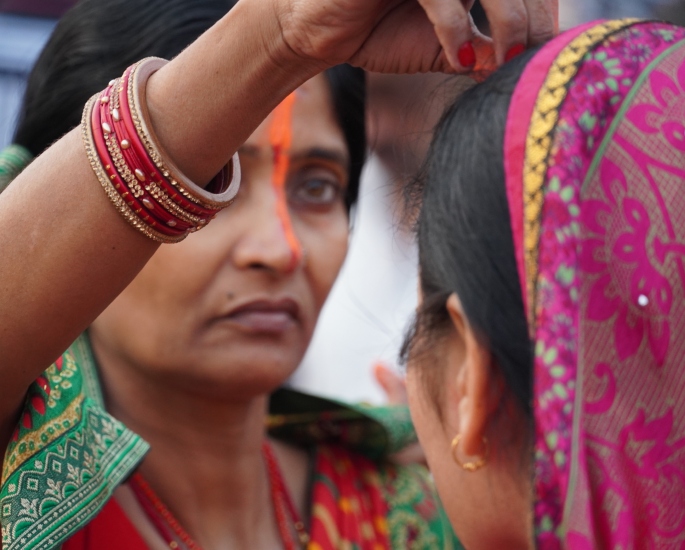
Families often seek a partner who shares similar beliefs, practices, and traditions.
Misalignment in beliefs and values can lead to the rejection of an arranged marriage proposal due to concerns about maintaining cultural traditions.
Those from similar social backgrounds, comparable educational levels, or who belong to a respected and well-established family are desirable.
Mismatched social status can lead to concerns about societal acceptance, family reputation, and potential imbalances within the relationship.
This also applies to a family or individual’s faith.
Marrying into a family with a different status or belief system may be seen as a risk to the family’s reputation, especially in South Asia.
Families may reject an arranged marriage proposal if they believe it could negatively impact their standing in the community or result in judgment and social exclusion.
Looking at more British Asian families, a lack of faith or beliefs itself can lead to rejection.
A lot more British Asians are open to new ideas, traditions and cultures.
Whilst there is nothing wrong with that, some families may look at this with judgment and find it dishonourable compared to their own beliefs.
No Life Skills
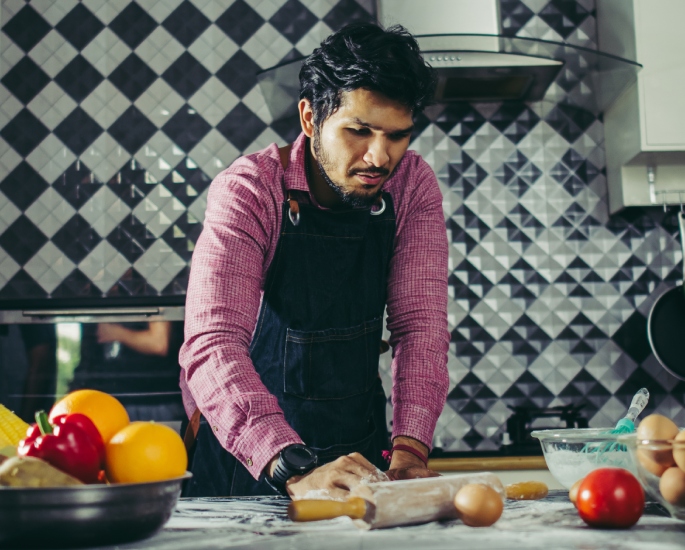
South Asian cultures often expect individuals to possess certain life skills necessary to manage practical responsibilities within marriage and household.
These skills may include cooking, cleaning, managing finances, and taking care of daily household tasks.
The absence of life skills can raise concerns about the individual’s ability to fulfill these practical responsibilities.
South Asian families may reject a proposal if they think a potential partner is too reliant on others.
Likewise, some communities have clear role expectations within a marriage, with specific gender roles assigned to men and women.
The absence of life skills can lead to doubts about the individual’s ability to fulfill their designated roles effectively.
For example, if a woman lacks basic cooking skills, it may be seen as a potential hindrance to her role as the primary caregiver and provider of nourishment for the family.
Or, if a man cannot help with daily tasks or fix things around the house, his role can be questioned within marriage.
A significant disparity in life skills can raise concerns about compatibility in managing day-to-day affairs, making joint decisions, and working as a team within the marriage.
The absence of life skills can create doubts about the person’s ability to meet these expectations and contribute effectively to the family.
Already in a Relationship
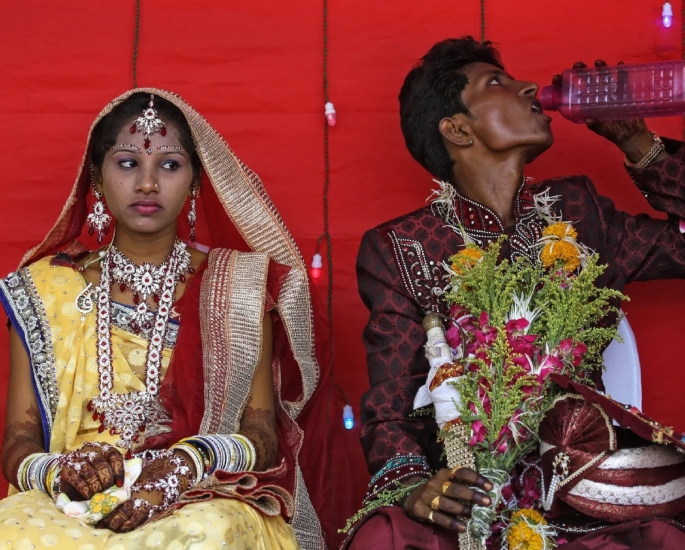
South Asian cultures place a strong emphasis on trust and honesty within relationships.
The discovery of a hidden relationship raises concerns about the individual’s honesty and integrity.
Both men and women still hide their relationships from their parents as they don’t want to go against the idea of dating before marriage.
So, they will go along with an arranged marriage process and keep on rejecting potential suitors.
Or, in some cases, individuals will get married whilst being in a relationship with someone else and bribe their partner to keep quiet.
This is evident, in mostly men, who will force their wives to keep quiet and live double lives.
It is also apparent in LGBTQ relationships where men/women want to protect their sexuality, so they go along with a ‘traditional’ marriage.
The revelation of any hidden relationship can lead to a loss of reputation for the individual and their family.
Therefore, families may reject the proposal to avoid social stigma and maintain their standing in the community.
Parents’ Opinion Is Worth More?
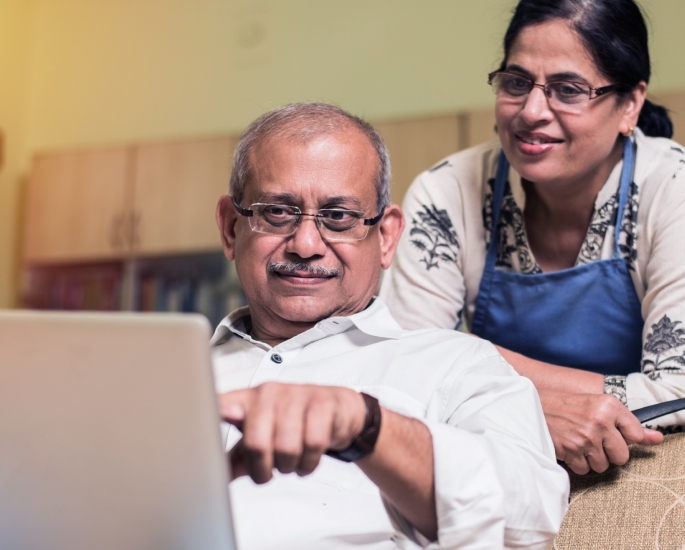
Children are expected to honour their parents’ opinions and seek their guidance in important life decisions, including marriage.
Parents’ opinions in arranged marriages are seen as crucial for maintaining family harmony and aligning with the collective interests of the extended family.
Families may reject a proposal if parents’ opinions are not aligned with the potential match, as it may lead to conflicts, tensions, or divisions within the family unit.
South Asian cultures have specific cultural and social expectations regarding marriage.
Parents’ opinions are influenced by these expectations and societal norms.
They consider factors such as social status, and family background to ensure a suitable match that meets the cultural and social expectations of the community.
Not meeting their standards often leads to rejection.
However, it can also lead to hostility from the groom or bride-to-be who want to make their own choices in this process.
If the parents take the lead on everything, their child could still reject the suitor for another reason like lack of attraction or no life skills.
Parents’ opinions are shaped by their desire to ensure a secure and prosperous future for their child.
Therefore, they lack the emotional or spiritual connection to the potential addition to their family.
That experience is for their own child to have and if they don’t gather that intimacy when meeting the person, it can also lead to rejection.
Rumours may also spread about the family’s involvement and could deter future suitors.
Ultimately, parents’ opinions in arranged marriages are driven by their love and concern for their child’s well-being and happiness.
But, when it becomes overbearing and controlling, it leads to more tension.
Arranged marriage rejection in South Asian communities stems from a variety of factors.
These reasons reflect the complex interplay between cultural values, personal autonomy, and the pursuit of happiness within the context of arranged marriages.
While these cases exemplify the challenges that can arise, it is important to remember that arranged marriages can also be successful when mutual compatibility and understanding are established.






























































